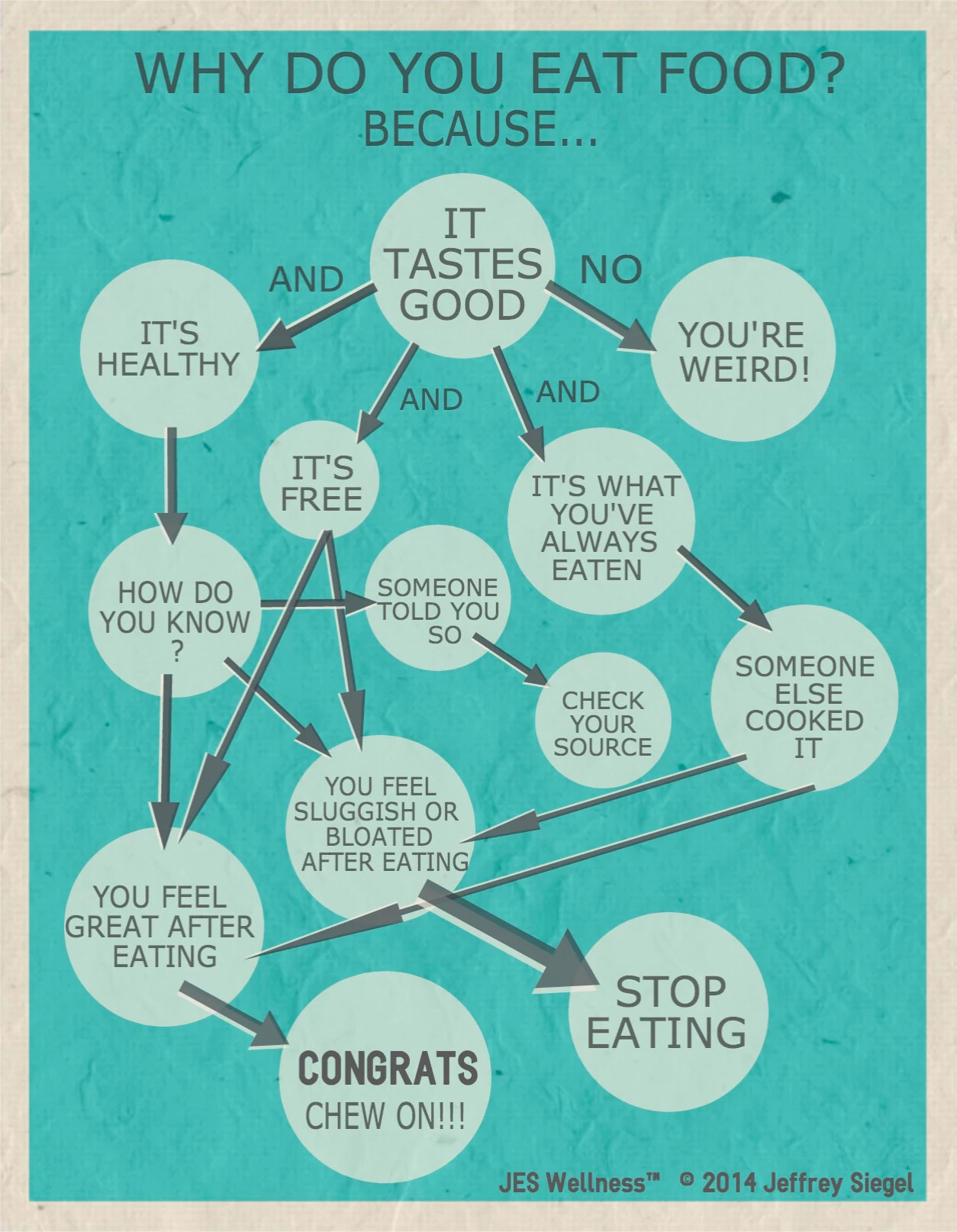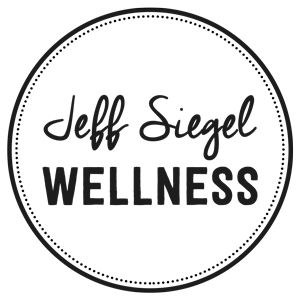Why do you eat the foods you eat? If you can’t answer this question, good luck trying to eat healthier. You’re probably not going to get very far.


So let me ask, why do you eat the things you do?
- Because you believe they’re healthy?
- Because they’re a good value?
- Because they’re convenient?
- Because it’s what you’ve always eaten?
Chances are that all of the above have driven your food choices at some point in time. Yet there’s one factor that supersedes all of these – the experience of pleasure.
On the most basic level we want to avoid the pain of hunger and seek the pleasure of being full. We eat to be satiated.
If it all began and ended there, we wouldn’t have much to talk about. Yet the mind eats for many reasons, and problems arise when food becomes more than just a way to get rid of hunger–it becomes a way of adding fulfillment and comfort into our lives. This is not to say food shouldn’t be sweet and fulfilling. I love to enjoy delicious, creative and nourishing food. However, the slippery slope of poor eating habits begin when eating becomes a tool to regulate our emotional state beyond our physical needs.
The biggest difference I see between people with a healthy relationship to food and those who struggle with weight management, binge eating, body image or over-exercising issues is how they relate to feelings of hugner. Simply put, healthy people enjoy food. They eat when they’re hungry but rarely over eat. More importantly, they don’t use eating to manage their mood.
I once heard you should approach eating the way they you go to the bathroom, as a daily activity that is necessary and essential. It can be very pleasurable, but when you’re done on the toilet, there’s no lingering need to keep going. In other words, don’t hang around the toilet waiting for more. The same goes for the hors d’œuvre table.
People who struggle to find balance with their food, mood, and bodies don’t have such a nonchalant relationship with food. They typically eat beyond the point of fullness. Or conversely, they deny themselves of food when they are hungry. The result is micromanaged eating that rarely respects or acknowledges hunger and satiety signals in an appropriate way. Rather than listening to and working with the body, the mind dictates what the body deserves and how it should feel. Life becomes a mental dictatorship rather than a mind-body collaboraiton.
While such external and rigid approaches can work for a while, inevitably, the body rebels. Everyone who has ever been caught in binge, obsessed with their next meal, felt guilty after eating, or found themselves scrutinizing ever morsel of food to pass their lips has experiences some degree of mind-body disharmony. Ironically, the more one tries to control the body’s voices, the more likely it is to scream and shout in unproductive ways.
How can you break free from the cycle mind-body distrust that fuels unhealthy eating? The first step is bringing AWARENESS to your present state.
In this moment, can you speak the truth of what you are experiencing without any need to judge or change it?
This means noticing whatever is going on inside of you, even if it’s not appealing or comforting.
You might realize that the truth is that you are feeling anxious using food to numb your nervousness. You might realize that the truth is that you are feeling alone or unloved and using food to satiate your desire for comfort and connection. You might realize that you don’t trust your body and emotions, and eating is a way to shift back into a sense of control and safety. You might realize that you’re actually physically full, but eating out of desperation or distraction.
The more you can observe your habits in actions, without judging, resenting or changing them, the more you can begin to identify the NEEDS and EMOTIONSthat underline why you eat the way you do.
As Mary O’Malley says in the wonderful book, The Gift of Our Compulsions: A Revolutionary Approach to Self-Acceptance and Healing,
“All the stories in our heads that put us down, no matter how seductive they are, are just old tapes. They are the result of learned patterns of relating to ourselves through expectation and judgment rather than from the vast healing of our hearts — and they don’t know a thing about who we really are!”
Slow down and figure out who you really are and why you eat the way you eat. This is the first and most crucial step to regaining that incredible sense of being alive, in your body, with trust, love and joy.
No food can provide the same nourishment we get when we understand and love ourselves from the inside out. Chew on that for a moment.
I’m Jeff Siegel, a wellness coach and mindfulness teacher, helping people upgrade their habits and improve their health. For free bi-monthly wisdom on how to eat, move, and be healthier, sign-up for my newsletter. If you’d like to explore working together, you can schedule a private 30-min consultation call with me.



